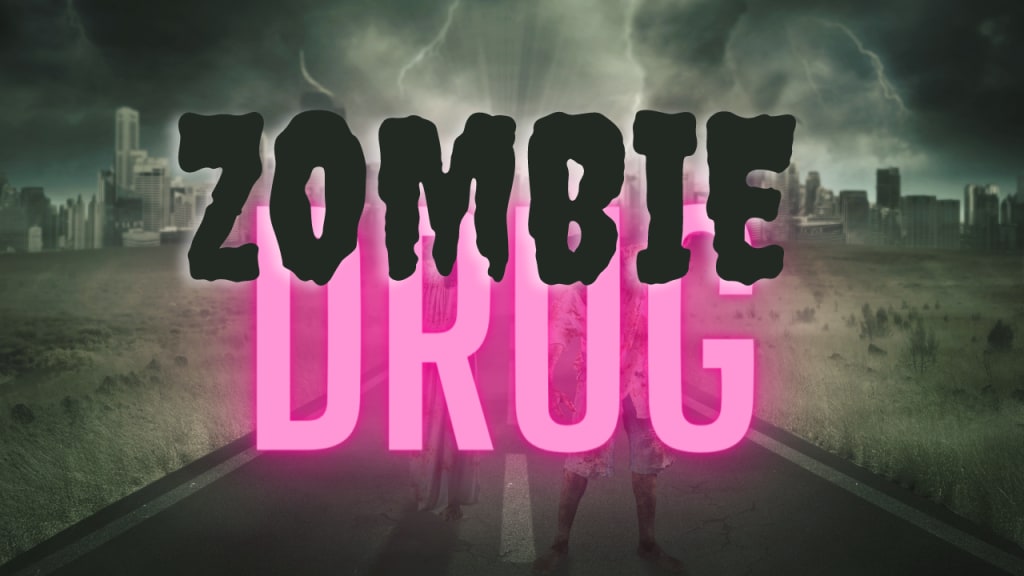A New Drug Called Xylazine, also known as "Tranq"
Zombie Virus

The concept of a zombie virus has been a popular theme in movies and TV shows, with the idea of a virus that turns people into mindless, flesh-eating zombies capturing the imagination of audiences worldwide. While the existence of such a virus remains purely fictional, a new drug called Xylazine, also known as "tranq," has been making headlines as a potential contributor to the zombie-like behavior seen in some individuals.
Xylazine is a drug used in veterinary medicine as a sedative and muscle relaxant. It is often used in combination with other drugs to immobilize animals for medical procedures or transportation. However, in recent years, Xylazine has become a popular street drug, particularly in the United States, where it is commonly referred to as "tranq."
The use of Xylazine as a recreational drug has been linked to a range of side effects, including respiratory distress, low blood pressure, and heart problems. However, the most concerning side effect of Xylazine use is its potential to cause zombie-like behavior in users.
Users of Xylazine have been reported to exhibit symptoms similar to those seen in zombie movies, such as a blank stare, slow movements, and unresponsive behavior. Some users have even been known to collapse and remain unresponsive for extended periods, leading to speculation that they may have died and come back to life.
While there is no evidence to suggest that Xylazine actually turns people into zombies, the drug's ability to cause zombie-like behavior has raised concerns among law enforcement officials and health experts. The use of Xylazine is particularly prevalent among the homeless population, and reports of "tranq zombies" have been on the rise in cities across the United States.
The use of Xylazine as a recreational drug is not limited to the United States, with reports of its use also coming from countries such as Mexico, Colombia, and Argentina. In these countries, Xylazine is often used as a cheap alternative to heroin, leading to a rise in addiction rates and related health problems.
Efforts to curb the use of Xylazine as a recreational drug have been met with limited success. Law enforcement officials have been cracking down on the drug's distribution and use, with some success, but the drug remains widely available on the black market.
Information on Xylazine
Xylazine belongs to the class of drugs known as alpha-2 agonists. These drugs work by stimulating the alpha-2 receptors in the brain and spinal cord, which leads to sedation, muscle relaxation, and a reduction in pain sensation.
In veterinary medicine, Xylazine is used in combination with other drugs to immobilize animals for medical procedures or transportation. It is particularly useful in large animals such as horses and cattle, where the drug's sedative and muscle relaxant properties make it easier to handle and transport the animals safely.
In recent years, Xylazine has become a popular street drug, particularly in urban areas in the United States. The drug is often sold as a cheap alternative to heroin or other opioids, and its effects are said to be similar to those of opioids, such as a feeling of euphoria and pain relief.
However, the use of Xylazine as a recreational drug has been linked to a range of health problems, including respiratory distress, low blood pressure, heart problems, and neurological symptoms such as seizures and coma. The drug's sedative properties can also lead to a high risk of overdose, particularly when used in combination with other drugs.
The potential for Xylazine to cause zombie-like behavior in users has been a cause for concern among law enforcement officials and health experts. The drug's sedative properties can lead to a state of unresponsiveness and a blank stare, which is often associated with zombie-like behavior.
The rise of Xylazine use as a recreational drug has been particularly prevalent among the homeless population in the United States. Homeless individuals who use the drug are at a high risk of overdose and related health problems, as well as being vulnerable to other health issues associated with living on the streets.
Efforts to curb the use of Xylazine as a recreational drug have been challenging, particularly given the drug's widespread availability on the black market. Law enforcement officials have been working to crack down on the drug's distribution and use, but the drug remains popular among some populations, particularly those who are addicted to opioids.
In conclusion, Xylazine is a drug with significant medical uses in veterinary medicine, but its rise as a recreational drug has raised concerns about its potential to cause zombie-like behavior in users. The drug's sedative properties can lead to a state of unresponsiveness and a blank stare, which is often associated with zombie-like behavior. Efforts to curb the use of Xylazine as a recreational drug are critical to preventing further harm to individuals and communities.
About the Creator
Dinesh Ram
Meet Dinesh Ram, a content writer & digital designer passionate about researching food habits. Skilled in crafting engaging & informative content. Creating unique content that stands out in the online space.






Comments
There are no comments for this story
Be the first to respond and start the conversation.